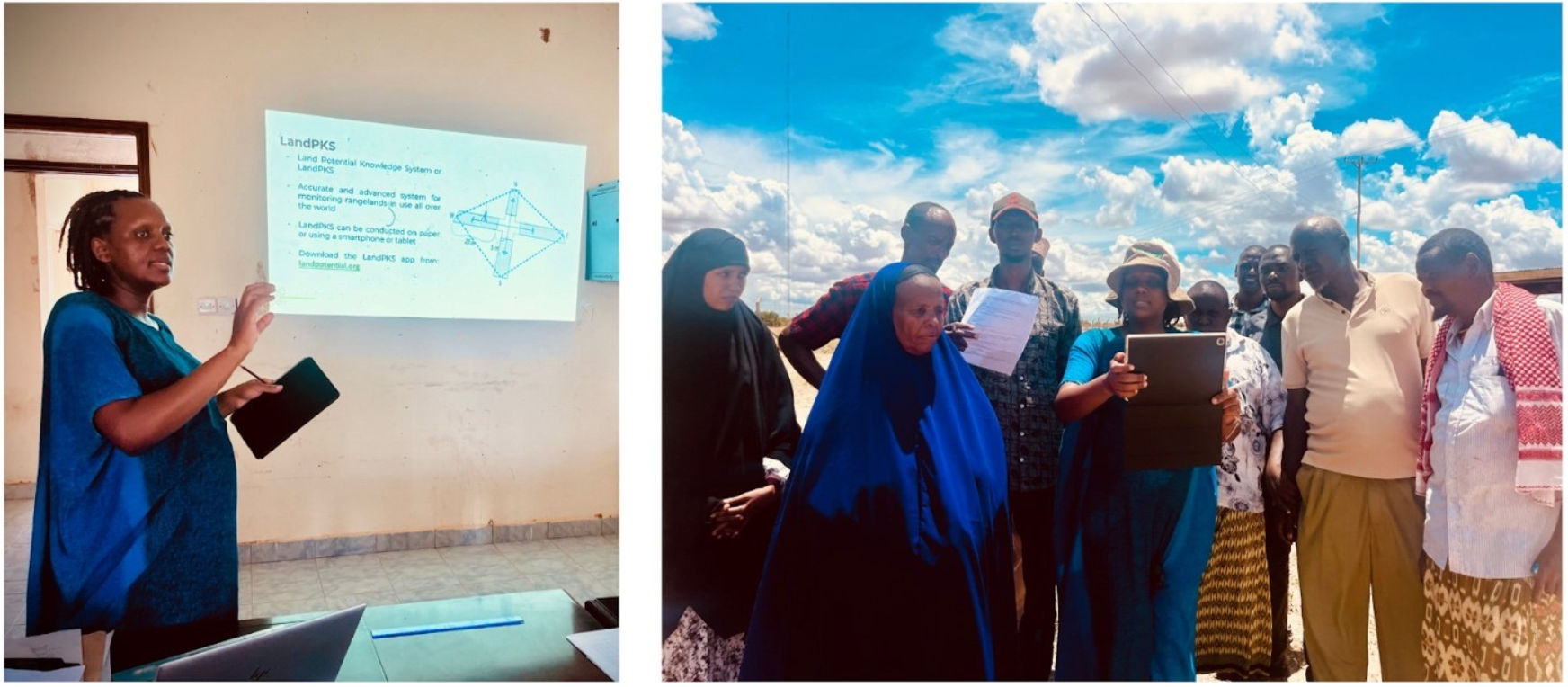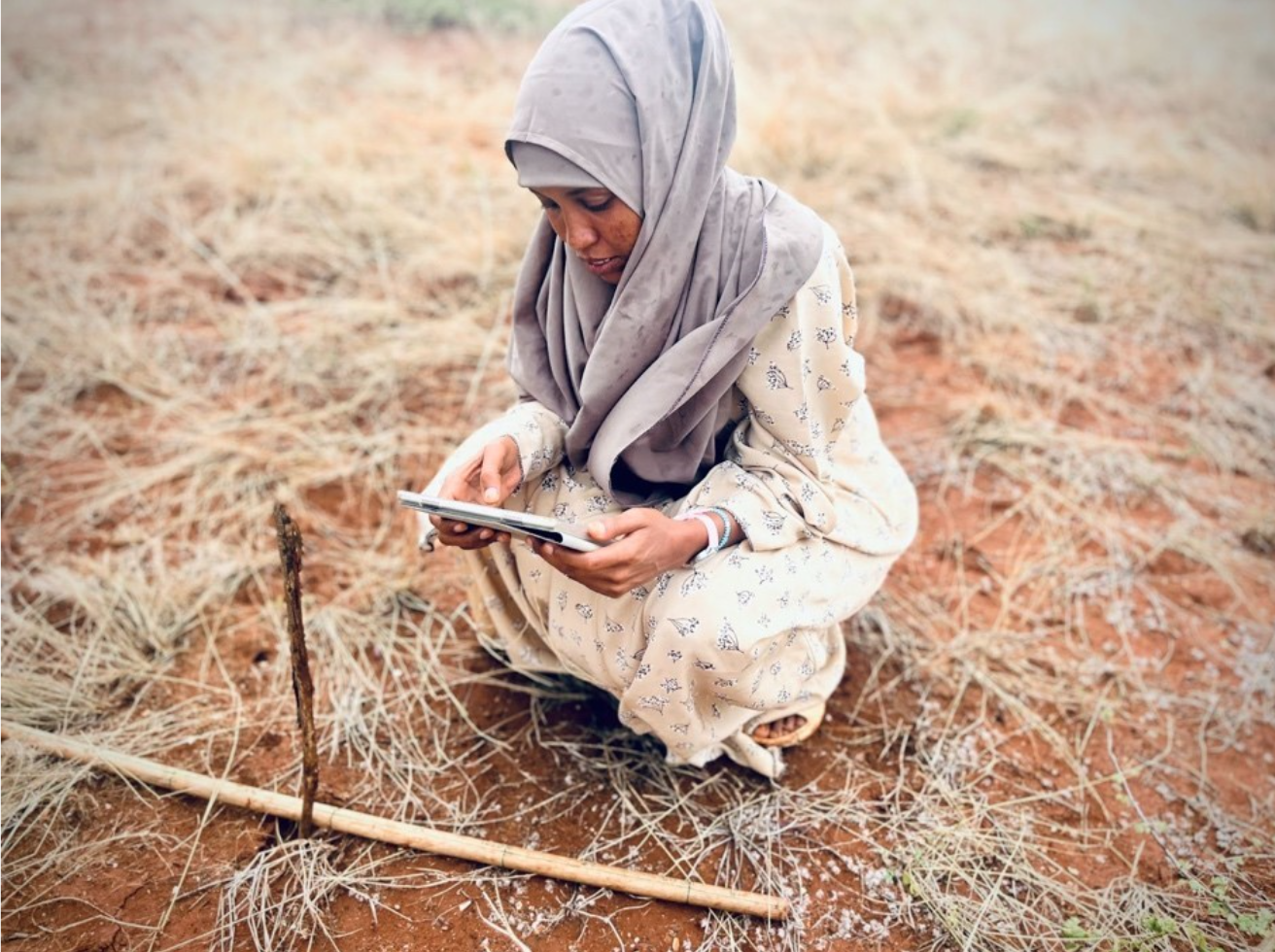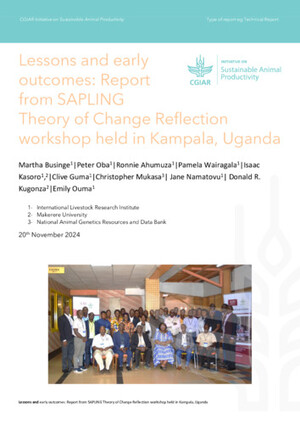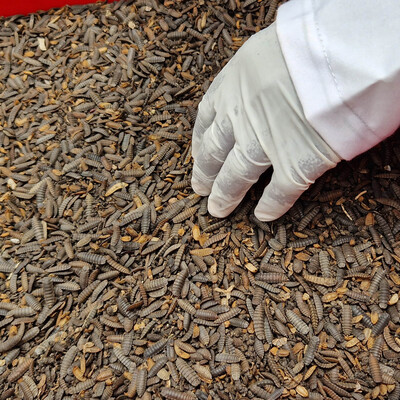
Supporting Wajir communities to carry out participatory rangeland management
Participatory Rangeland Management (PRM), developed by the International Livestock Research Institute (ILRI) and partners, builds the capacities of communities to better manage, govern and restore their lands. In 2023, as part of ILRI’s contribution to the Accelerating Impacts of CGIAR Climate Research for Africa (AICCRA) project in Kenya, local NGO Resource Conflict Institute (RECONCILE) worked with local government and community representatives to establish PRM for resident pastoralists in Arbajahan ward in Wajir county.
Much like other pastoral areas, Arbahajan ward heavily depends on its rangelands for healthy and productive livestock. Earlier this year the community defined and mapped their rangeland management unit and established a rangeland management committee (RMC). The next step was to better understand the status of rangeland resources and where land needed restoration.
In May RMC members supported by RECONCILE and ILRI carried out a Participatory Rangeland Resource Assessment (PRRA). Through the PRRA process a community is able to assess rangeland potential, condition and needs for intervention, whilst also providing a baseline to evaluate change and track progress when implementing a rangeland management plan as part of a community-led monitoring system.
Irene Nganga, research officer at ILRI, trained the Arbajahan RMC members to carry out PRRA. This included how to assess rangeland condition using the Land Potential Knowledge System (LandPKS). The RMC selected six representatives (four men and two women) to conduct the field assessments with the ILRI and RECONCILE team.
‘Monitoring rangeland condition and evaluating the effectiveness of management are important aspects of strengthening the planning and management of rangelands. We are here to help communities to develop an improved monitoring and evaluation system as part of strengthening their rangeland management roles,’ said Nganga.

Once the training was completed the assessment team carried out the PRRA in different rangeland environments across the county. Using a community monitoring tool and a mobile app called Land PKS, the RMC members collected data from different sites. The team attended 10 out of 15 sites but could not get to some areas due to flooding.
Community involvement is key to the long-term sustainability of the project:
‘[PRRA] will help the community to take ownership of the rangelands and do routine monitoring. To assess the forages, shrubs, grasses, trees in this area. Maybe after the rangeland management plan is developed and implemented, they can agree to make this a dry grazing area season so that people can be instructed not to move to this part of the ward so that rangeland can regenerate and become healthy,’ said Abdullahi Ibrahim, RECONCILE field officer.

‘We learned a lot because we didn't know about the type of grass and vegetation and what animals feed on. We also learned on the soil structure and quality,’ said Halima Ibrahim, an Arbajahan ward community representative.
The information collected is now being analysed for a report, which will be validated by community members involved in the data collection before finalisation. The community will use the knowledge gained from these activities to develop a PRM plan for the grazing area. The PRM process uses several awareness building processes and capacity building initiatives like these trainings and assessments to support the community.
--Acknowledgements
The PRRA process was conducted with support from Accelerating Impacts of CGIAR Climate Research for Africa (AICCRA) and the CGIAR Research Initiative on Livestock and Climate Initiative. ILRI thanks the World Bank all its donors contributing the CGIAR Trust Fund.
AICCRA works with national and regional partners to transform climate services and scale climate-smart agriculture, increasing access to and use of CGIAR innovations such as PRM. PRM is a core innovation of the CGIAR Research Initiative Livestock and Climate that aims to strengthen community capacities in planning, managing, and governing their rangelands more effectively.
Learn more about the methodology in the following short film:














